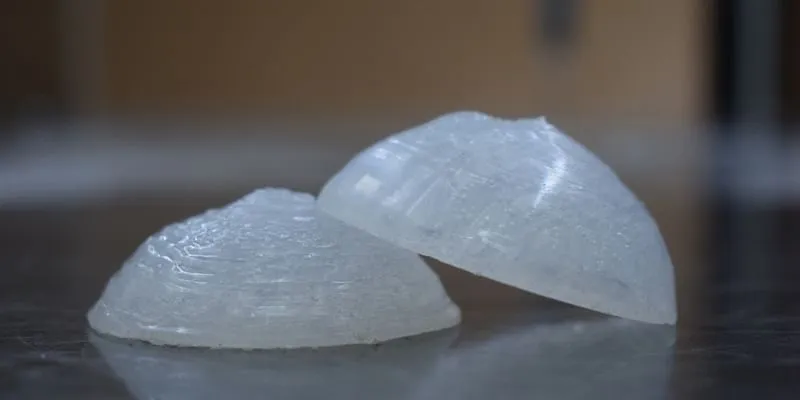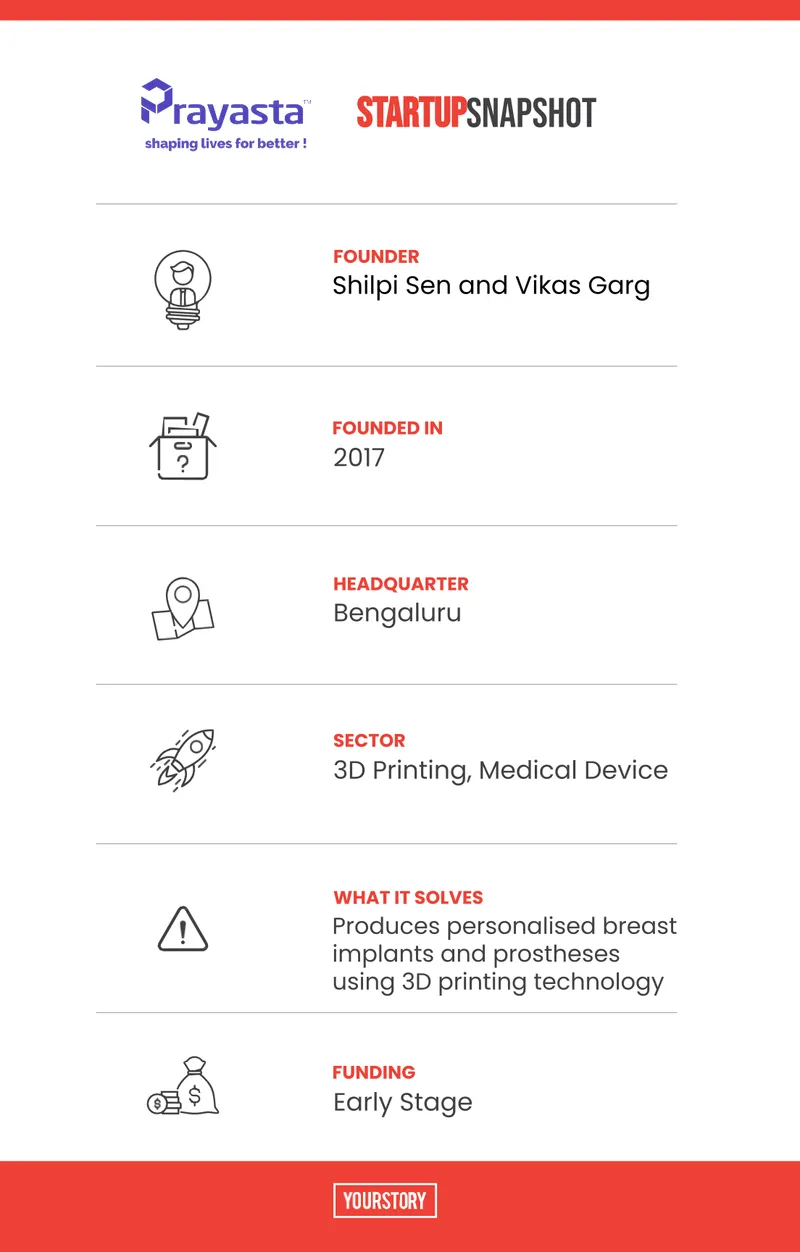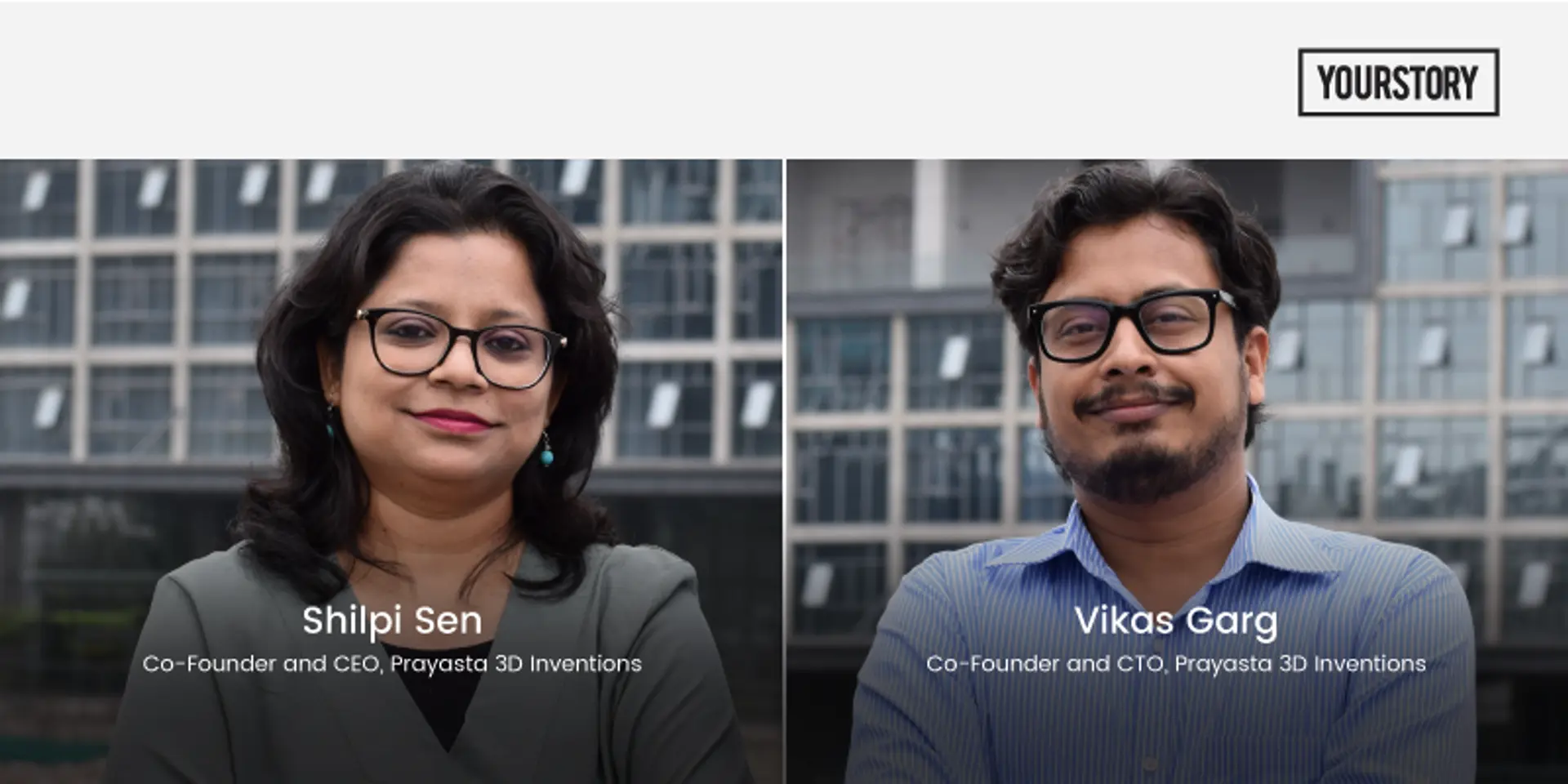This startup is using 3D printing to make silicone-based breast implants and prostheses for mastectomy survivors
Bengaluru-based Prayasta is developing a 3D printing technology to manufacture personalised breast implants and prostheses. The startup will eventually focus on other tissue implants like the chin, nasal, lip, and pectoral, among others.
Breast cancer is a growing concern for women across the world. According to WHO data, 2.3 million women were diagnosed with breast cancer globally in 2020, and 685,000 women lost the battle to the disease.
Sometimes, in order to treat or avoid breast cancer among those at a higher risk, women undergo mastectomy surgery i.e., complete or partial removal of breasts. Several medical resources have confirmed that the prevalence of depression is common in breast cancer survivors. The mental stress and anxiety from fighting cancer takes a further blow after mastectomy as women may face mental issues related to self-image and confidence.

Image Credit: Prayasta 3D Inventions
Bengaluru-based , founded by Shilpi Sen and Vikas Garg in 2017, is looking to help mastectomy survivors by developing novel 3D printing technology to manufacture personalised breast implants and prostheses.
The startup is aimed at developing personalised soft tissue implants and prostheses, and has started its journey with a focus on breast implants. It will eventually focus on other tissue implants including the chin, nasal, lip, pectoral, malar, and gluteal, among others.
Shilpi began researching the problem after she lost her maternal aunt to breast cancer. While working in the communication segment at Nuffic's Netherlands Education Support Office (NESO) India, she met Vikas, who comes from a healthcare background with skills in 3D printing and the development of novel 3D printing technologies for handling bio-compatible materials.
Speaking to YourStory, the co-founders explain there was a need for personalised breast implant of prostheses instead of all size fit to help women feel more comfortable. In order to achieve personalisation, the team built the entire implant-grade silicone printer indigenously.
“The technology was developed in-house and the printer Silimac P250 was made from scratch to manufacture our end product,” Shilpi says.

Silimac P250 [Image Credit: Prayasta]
Addressing the personalisation issue
Fighting cancer and losing an organ in the process can lead to unimaginable mental stress. Amid such times, the last thing one needs is sympathetic comments from others constantly reminding them about their implant or prostheses.
Prayasta is looking to ensure one-to-one personalisation according to the women’s body structure, size, and shape, and ensures the implant is closest to the natural organ.

Image Credit: Prayasta 3D Inventions
Vikas explains the personalisation requirement is not only related to the looks and feel of the organ but also has health implications. Breast implants are generally filled with silicone gel, which has its own weight. If the implant weight does not match the user’s body weight requirements, it can eventually lead to back pains and posture problems, among others.
“We use the same material silicone that is used for making the current implants. What is different is the manufacturing process. Conventional implants are made using dip casting method using a mandrel made out of metal or other material. Mandrel is practically a template of shape and size. One takes this mandrel and dips it in silicone and puts it inside an oven to solidify the silicone. After repeating this process about eight to 10 times, we finally get the silicone shell, which then needs to be filled with silicone gel. The opening is then closed using another patch of silicone. That is how conventional breast implant is made,” he adds.
Now, the problem in this method is the mandrels are pre-made on the basis of a generalised idea of shape and size and the end-users purchase the model, which is the closest fit for them. In case of one-to-one personalisation using the conventional method, one will need to get the entire mandrel made, which is extremely expensive.
3D printing eliminates the entire need for mandrel as virtualisation becomes very easy. One can design the shape, size, and form in a computer and the printer can directly take input from that computer. Apart from this, it also removes the need to fill silicone gel or saline inside.
The co-founders explain that in case of saline or gel-filled implants, if the user gets into an accident that ruptures the outer shell, the implant will need to be immediately changed as silicone gel can be fatal. Due to this reason, traditional breast implants are also not suitable for sutures.
In case of 3D printing, the end products are leakproof, suturable, and balanced according to body weight, and also ensures body symmetry.
“It is also very important that the touch and the feel of the implant when once it is implanted is as close as possible to the natural organ however the natural tissue differs from person to person. Thus, personalisation helps address this challenge,” he adds.
Shilpi informs that the 3D printing technology developed by Prayasta has been granted a patent in India, and the startup has also filed for patents in the US and Europe.

Illustration: YS Design
Plans ahead
Shilpi reveals that implants and invasive medical devices require regulatory approvals, which can take up to five to six years before it gets commercially launched.
However, Prayasta is looking to commercially launch its prostheses in the market within the next six months. The prototype is ready at present and is looking to undergo trials.
“We are now looking to partner with NGOs, hospitals, healthcare institutions, etc., who will help create awareness, educate women, educate doctors and other healthcare workers on why personalisation is required,” she adds.
According to a report by Fortune Business Insights, the global breast implants market size was valued at $2.76 billion in 2019 and it is expected to reach $3.05 billion by 2027, growing at a CAGR of 7.2 percent.
While the technology is fairly new, another player in this space is France-based Lattice Medical, which develops a 3D printed bioabsorbable and tissue-engineered implant for breast reconstruction surgeries.
Vikas, however, highlights a problem in the Indian market. He explains that in most Western countries, the surgery is covered under health insurance. However, it is not the case in India because breast implant surgery is largely considered under cosmetic surgery. He explains there is a need for awareness about the same with the stakeholders to understand that breast implants can be important for cancer survivors.
Prayasta began its journey with a grant from DST under Nidhi Prayas. It also won a lot of competitions and is supported by grants such as the Biotechnology Ignition Grant from BIRAC, Design Clinic Scheme from MSME Center of excellence in IISc, Tide 2.0 from Meity, and also ElevateCall2 from Startup Karnataka.
“We are now open to raising funds to continue our journey. We are also looking to create a clinical advisory board where we can seek help and guidance from specialist doctors in these areas,” Vikas adds.
YourStory’s flagship startup-tech and leadership conference will return virtually for its 13th edition on October 25-30, 2021. Sign up for updates on TechSparks or to express your interest in partnerships and speaker opportunities here.
For more on TechSparks 2021, click here.
Edited by Megha Reddy









